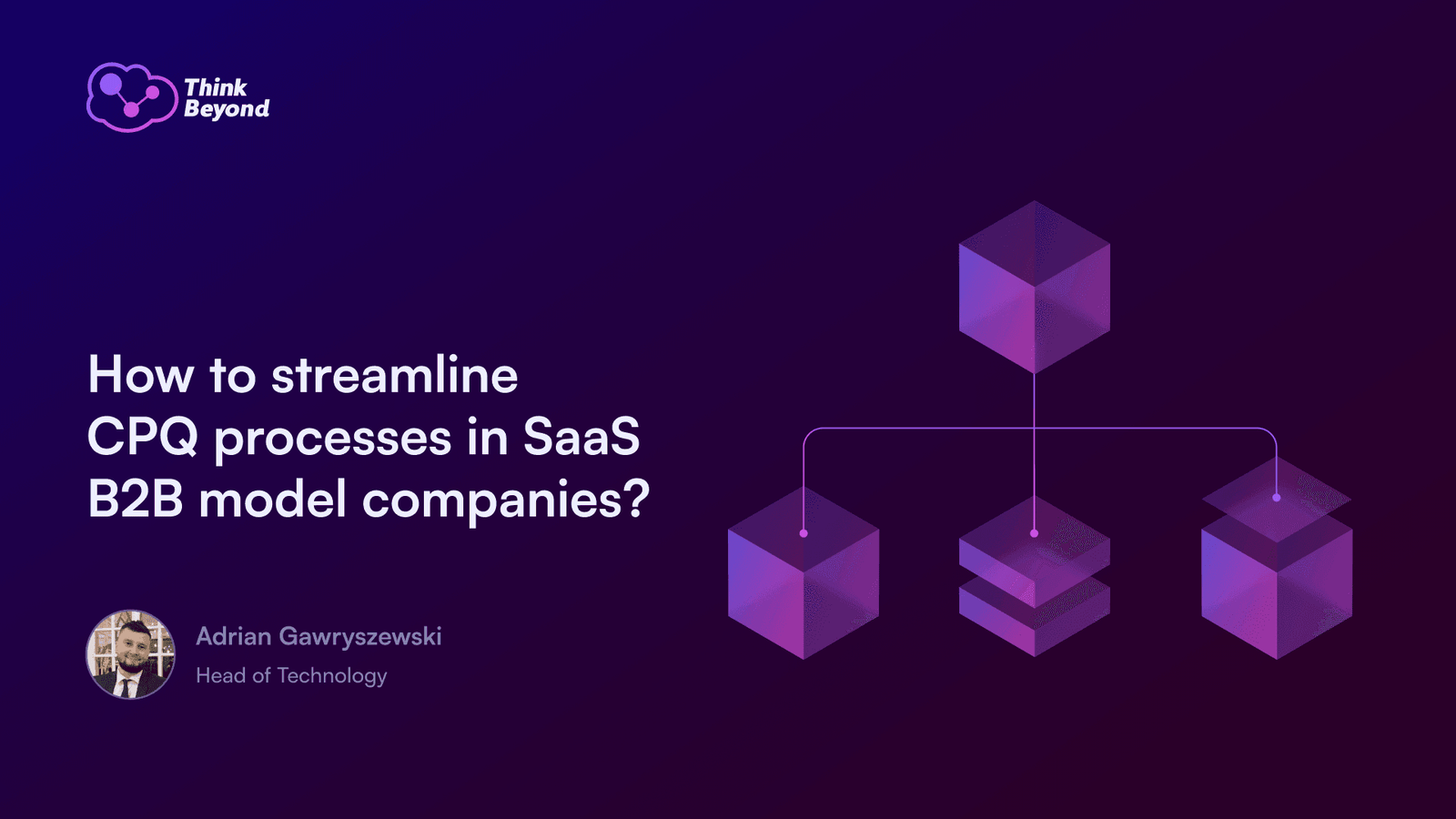
The evolving landscape of emerging business models, including Software-as-a-Service (SaaS) companies, requires reevaluating conventional business approaches. Software must adjust to take advantage of fresh chances and match up with the demands of these cutting-edge businesses.
The effective management of the Configure, Price, Quote (CPQ) process and the best practices for SaaS software are essential. This article examines the nuances of these questions and shows how to manage and improve technology solutions in the context of SaaS enterprises.
SaaS are different from traditional businesses
Tools such as CPQ offer effective means to enhance workflows within rapidly growing SaaS companies. However, the software must address specific challenges inherent in new business models, such as:
- Integration with CRM systems
- Flexibility in handling diverse pricing models, discounts, usage-based fees, and subscription plans
- Streamlining the quoting process across various channels.
Salesforce CPQ addresses the specific needs of SaaS companies. How?
Because it provides a distinctive blend of CPQ, billing, and revenue recognition capabilities, presenting a comprehensive solution for sales teams.
Then, it facilitates effortless configuration of pricing and quotes, with high customizability to cater to specific business requirements.
Additionally, Salesforce CPQ seamlessly integrates with various other Salesforce solutions, including Sales Cloud and Service Cloud, offering an optimal choice for businesses already utilizing Salesforce as their CRM platform.
How does Salesforce help SaaS companies to streamline the CPQ processes in particular areas? Let’s look closer.
CPQ automates the workflow
CPQ improves the efficiency of various aspects of sales processes. It eliminates the necessity for manual approvals, thereby significantly shortening the sales cycle.
The extraction of data is seamlessly executed from crucial sources such as the product catalog, previous transactions, and customer data, thereby guaranteeing the accuracy and relevance of every quotation.
It makes sure that prices and settings match the rules. This enhances professionalism and mitigates the risk of errors in the quoting process.
CPQ excels in automating subscriptions, covering areas like contract renewals and customer lifecycle management, beyond one-time transactions. Businesses can ensure timely renewals, personalized customer experiences, and streamlined management throughout the customer journey by automating these recurring processes. Time-intensive tasks are transformed into automated, error-proof processes.
CPQ standardizes the process
CPQ software is used to standardize processes, such as setting up products and pricing, creating templates, and selling guided products:
- Cross-selling and upselling are seamless with CPQ, as it intelligently suggests additional products or upgrades based on customer preferences and needs.
- CPQ facilitates the creation of standard templates, thereby guaranteeing that quotations and proposals consistently reflect the brand image and adhere to established formatting guidelines.
- Standard pricing rules make sure that prices are the same for all products, which makes mistakes less likely and encourages fair and honest pricing.
- Guided selling helps sales suggest the best products and settings based on what customers want. This makes sure that salespeople work together to sell the right things.
- Dynamic pricing models add a layer of flexibility, allowing businesses to adjust pricing based on real-time factors such as volume discounts, contract terms, or customer-specific conditions. Pricing remains competitive and responsive to the ever-changing business environment because of this adaptability.
CPQ integrates with other systems
CPQ software works well with other business systems and helps information flow smoothly:
- It supports native Salesforce features, resulting in a unified ecosystem within the Salesforce platform. This native integration provides a cohesive environment for sales teams already using Sales Cloud.
- Beyond native integration, CPQ provides connectivity with other critical systems such as ERP (Enterprise Resource Planning), CRM (Customer Relationship Management), and e-commerce platforms. Data is synchronized across various functions, fostering a holistic view of customer interactions and transactions.
- The ability of CPQ to integrate feedback tools is an extremely useful feature, allowing companies to gather data and figures directly from their quotation and sales procedures.
Businesses can integrate CPQ with other relevant tools in their tech stack. Regardless of whether it is project management, analytics, or communication tools, CPQ’s flexibility enables organizations to build a comprehensive ecosystem tailored to their specific operational requirements.
CPQ empowers customers
CPQ software is more than just a tool for businesses. It helps customers have a better experience by giving them control over their purchase.
One of the key ways CPQ achieves this is through the ability to personalize product recommendations. Understanding customer preferences, previous transactions, and usage habits enables CPQ to suggest specialized product configurations, fostering a feeling of exclusivity and relevance.
Furthermore, CPQ introduces self-service portals for customers, which give them autonomy in navigating through product catalogs, configuring options, and generating quotes. This empowerment results in a more customer-centric approach, fostering loyalty and satisfaction.
CPQ utilizes analytics
Using analytics, CPQ helps organizations measure the effectiveness of their quoting processes by presenting things like quote-to-close ratios and sales cycle times. This data-driven approach lets businesses find bottlenecks and areas for improvement, which makes workflows more efficient.
CPQ analytics help to predict future trends. Analyzing previous performance and current market conditions enables organizations to make educated predictions about forthcoming sales, pricing tactics, and customer preferences. This forward-looking view helps organizations adapt to changing dynamics and stay ahead of the game in a competitive business environment.
Best practices to boost success in CPQ processes
Efficiency and customer satisfaction in SaaS B2B companies depend on streamlining the CPQ processes. To achieve this, you should prioritize comprehensive training for your sales teams on CPQ tools, ensuring they use them proficiently. Feedback loops with sales teams foster a culture of improvement, drawing on their insights to refine and enhance the CPQ process.
As the industry changes, it is important to keep up with the newest tools and methods to stay ahead of the competition. These strategies work together to make a CPQ framework more efficient and improve customer satisfaction by driving operational efficiency.

